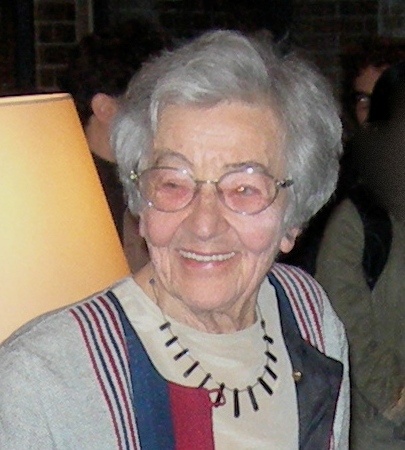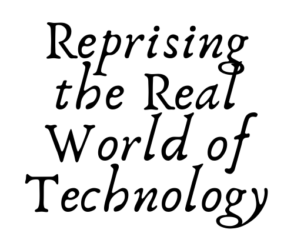Introducing Ursula Franklin: A Short Biography by Kanishka Sikri

Moxy at English Wikipedia, CC BY 3.0 <https://creativecommons.org/licenses/by/3.0>, via Wikimedia Commons
As a scholar-activist entangled in fields from physics and nuclear war, surveillance technology and its intersections with democracy and labour, peace and justice studies, to the ways in which women’s rights are embedded within other forms of seemingly invisible power-laced systems—such as technology and neoliberalism—Ursula Franklin was truly a force to be reckoned with. Dr. Franklin, the first woman to demand and hold the position of University Professor at the University of Toronto, worked across these multiple entanglements, and rather than universalize her theory, she localized and contextualized her work from her lived experience, drawing from her survival of Nazi Germany to working in sexist academic institutions. Dr. Franklin provided radical insight into debates around technology and its negative potentialities at a time when such innovation was considered the only technique we could use for ‘progress’ and ‘advancement’ in our techno-focused world.
Dr. Franklin asked a deafening question as, if not more, provocative today: even if technology helps us reach the limits of human development in unimaginable ways, does that mean we should let it—just because we can use technology to build an unimaginable world, does that mean we should? Contrary to popular imagination, Dr. Franklin’s response to technology was not to eradicate it or treat it as the enemy but to critically examine what we consider progress to be, and whether technology actually enables us towards its realizing.
Today, technology’s exuberant impact on our everyday lives and the rise of smart technology and cities, surveillance capitalism, and artificial intelligence, force us to reckon with Dr. Franklin’s critical frame, and hopefully turn to her for some much needed answers. In the Real World of Technology book of essays, published from Dr. Franklin’s Massey College lectures, she provokes that we must understand technology as an institution and structure that is socially constructed by and through people’s involvement in its design and implementation. Isolating technology from those it was made by and for, disables us from adopting a critical frame to conceptually think through the inequities built into such an oppressive hegemonic structure. By adopting, instead, a “prosocial” approach, Dr. Franklin informs us that technology ought to be collaborative, socially informed, and holistic—based on experiential critical pedagogy nurturing improv, on the spot, and worker determined processes—rather than prescriptive—predetermined, boxed, and isolated methodology. When this shift from perspective to holistic technologies takes place, she highlights, “the worker is in control [rather than] under control”.
Where neoliberal policy and capitalist globalization predicated on logics of white supremacy, colonialism, and patriarchy have disengaged workers from the fruits of their labour, we can see the very lived and real effects of Dr. Franklin’s theorization; and accordingly must make visible and challenge the ways technology is further perpetuating domination. As she stresses, we must be vigilant in where we place our critique for it is not that technology is in of itself a negative, exclusionary tool, but that the way it is designed and the power structure that prescribes it legitimacy determines the reality of technology’s expression. When utilizing holistic, collaborative and socially just processes, coupled with our creative potential to make visible the invisible forms of power that undergird technology, we can indeed make it, as Dr. Franklin illuminates, a radical tool of justice and liberation.
Archives
Ursula Franklin Fonds (Archived by the University of Toronto)
Ursula Franklin’s CBC 1989 Massey Lectures (Part 1-5)
Books
Reprising the Real World of Technology (House of Anansi Press; 1989)
Every Tool Shapes the Task: Communities & The Information Highway (Booklet/Chapbook; 1996)
The Ursula Franklin Reader: Pacifism as a Map (Between the Lines; 2006)
Ursula Franklin Speaks: Thoughts and Afterthoughts (McGill Queen’s University Press; 2014)
Interviews
Amazing Structure: A Conversation With Ursula Franklin by Robinson Meyer (The Atlantic; 2014)
Celebrating Ursula Franklin: pioneer in materials science and trailblazing feminist (UofT News; 2015)
War, Peace, and Health (CBC Interview with Paul Kennedy; 2013)
Citations & Memorials
Ursula Franklin Citation (Science.ca)
Ursula Franklin Street Renaming (University of Toronto; 2020)
Memorial Tribute to Ursula Franklin (University of Toronto Faculty of Applied Science & Engineering; 2016)
Obituary: Ursula Franklin, 1921-2016 (Times Higher Education; 2016)
